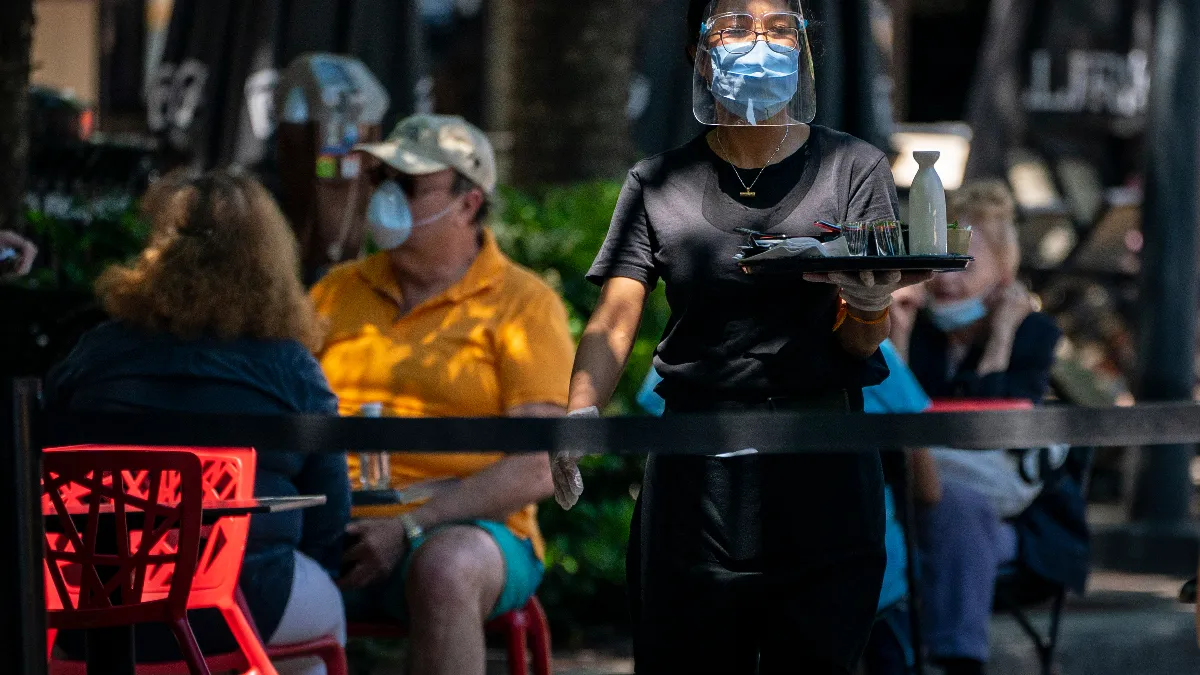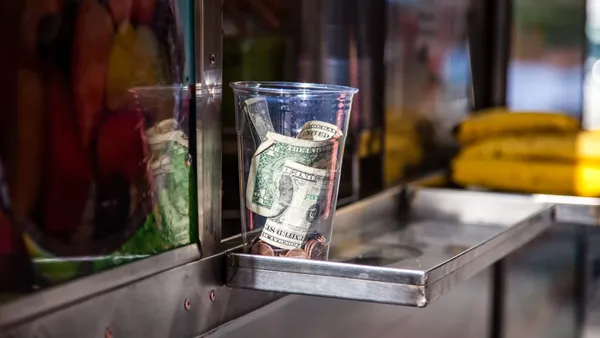Dive Brief:
- The top three reasons restaurant workers are leaving their jobs are low wages and tips (76%), COVID-19 safety concerns (55%) and concerns over hostility and harassment from customers (39%), according to a One Fair Wage report released on Wednesday.
- The report revealed 78% of workers would stay in their job if they had full, stable living wages, and 49% said paid sick leave would make them stay. The organization emailed surveys to 260,000 applicants to the One Fair Wage Emergency Fund beginning in October and collected responses through May 1. Over 4,300 workers responded, of which 2,838 were currently employed.
- Restaurants across the board are looking to boost staffing levels amid ongoing demand and sales growth as customers return to dining out, and many operators are adding hiring bonuses and incentives to try and attract more workers.
Dive Insight:
Even though foot traffic has increased exponentially in the last few months, 87% of workers report that their tips have decreased since COVID-19, with 69% saying tips have declined by at least 50% or more, OFW's report found. That drop has been most significant among Black restaurant employees, of which 90% said they experienced at least a 50% decline in tips or more, compared to 78% of all restaurant employees, according to a February One Fair Wage report.
Those employees that remain on the job are also seeing an increase in hostility from customers, with 80% saying they've seen or experienced hostile behavior in response to staff enforcing COVID-19 protocols, according to the OFW report released Wednesday.
Restaurant worker attrition
The labor shortage is also putting additional strain on existing employees who are having to cover more hours, tables and stations to keep up with customer demand — especially in the full-service segment. Roughly one-third of restaurant workers have also moved to a different industry following a year of instability in the segment, meaning there are even fewer employees available with hospitality experience left in the job pool, according to the OFW report.
Fifty-seven percent of restaurant operators believe a boost in federal unemployment benefits is exacerbating the labor shortage, according to a Black Box Intelligence report. Twenty percent believe workers have sought a better quality of life in another industry, while 14% said workers are leaving for other industries with higher pay.
Restaurant average hourly wages
The restaurant industry continues to grapple with how best to address a need for higher wages during a time when they are also trying to recoup lost revenue. Michael Fuquay, owner of The Queensboro in New York City, said he pays his staff fair wages and has helped his employees get through the past year, which allowed for him to remain fully staffed, according to the report.
Chipotle, which already pays an average of $13 per hour, has boosted benefits and incentives over the past year, including offering $6.5 million in discretionary bonuses to managers, apprentices and field leaders. Whataburger retitled its general managers as operating partners, and is offering bonuses of up to 150% a manager's target incentive and six-figure salaries.
One Fair Wage has also been taking aim at the subminimum wage of late, suing Darden Restaurants due to its cash wage policy that allegedly has employees rely on customer tips to bring their wages to the federal minimum wage.














